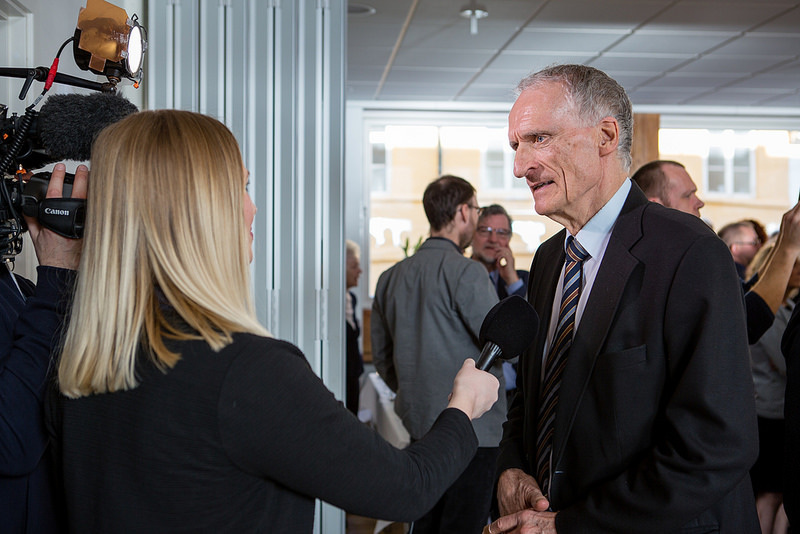|
Answering questions from reporters can be brutal. The questions can be sharp and direct, putting you on the defensive. You need your own defensive measures to stay in control of the interview. One of the easiest to spot is the false premise. The question that's being asked is phrased in such a way that it may be impossible to answer and still get your point across. The best move to make is to rephrase the question. "What I think you're really asking..." you might say. Or, "What I think the real issue is...." By rephrasing the question, you answer the question you'd like to answer rather than the one the reporter asked. Another technique is to broaden the issue. This is effective when the question you're asked applies to far more organizations than just yours. Your response would go something like, "Look, this applies to every (organization) across the state. It's not just about us."
A third potential problem is the hypothetical question. You're being asked to speculate on something that has not yet occurred. So, don't. "Well, I certainly can't predict what's going to happen," you could say. Or, "Well, I can't speculate about that." Then, pivot or "bridge" to the point you want to make. You may face tough questions, but you can improve your odds with a few defensive measures like these to help you stay on message. mackcommunications | twitter: @mack_comm
1 Comment
|
tags
All
Archives
March 2019
|
Photos from Meet the Media Guru, Joseph.Morris, BoldContent, MDGovpics, Grzegorz Łobiński, Mr Moss, North Charleston, ITU Pictures, wistechcolleges, .v1ctor Casale., www.audio-luci-store.it, katielips, editor64, NeighborLink Fort Wayne, AMagill, timsackton, MyFWCmedia, Matt J Newman, Mr.TinDC, Skley, mikecogh, othompsonski, wayne's eye view, Elvert Barnes, woodleywonderworks, North Charleston, MoBikeFed, flossyflotsam, North Charleston, NYCDOT, US Mission Geneva, jjandames, aalborgstift, BurnAway, A. Germain, North Charleston, NCDOTcommunications, IAEA Imagebank, The Chapman Cultural Center, hitsnooze, Wiertz Sébastien, charliekwalker, cliff1066™, TheeErin, woodleywonderworks, dane brian, Aramil Liadon, 2010 World Wheelchair Basketball Championships, Ty Nigh, freddthompson, Nadia Szopinska, west.m, stormwarning., Bright Meadow, Giorgio Montersino, Chris Erwin, Aplomb, jfingas, joce01_y, Massachusetts Dept. of Environmental Protection, Kevin Walter, Andrew Feinberg, Yan Arief, kellypretzer, Korean Resource Center 민족학교, veDro - l'Italia al futuro, crdotx, US Mission Geneva, Joe Shlabotnik, esocialmediashop, Stephen Cummings, CarbonNYC, sidewalk flying, MoBikeFed, marksdk, Marco Raaphorst, Saleel Velankar, adactio, edkohler, World Economic Forum, USACE Europe District, stereogab, Florin Rosoga, MikeSchinkel


